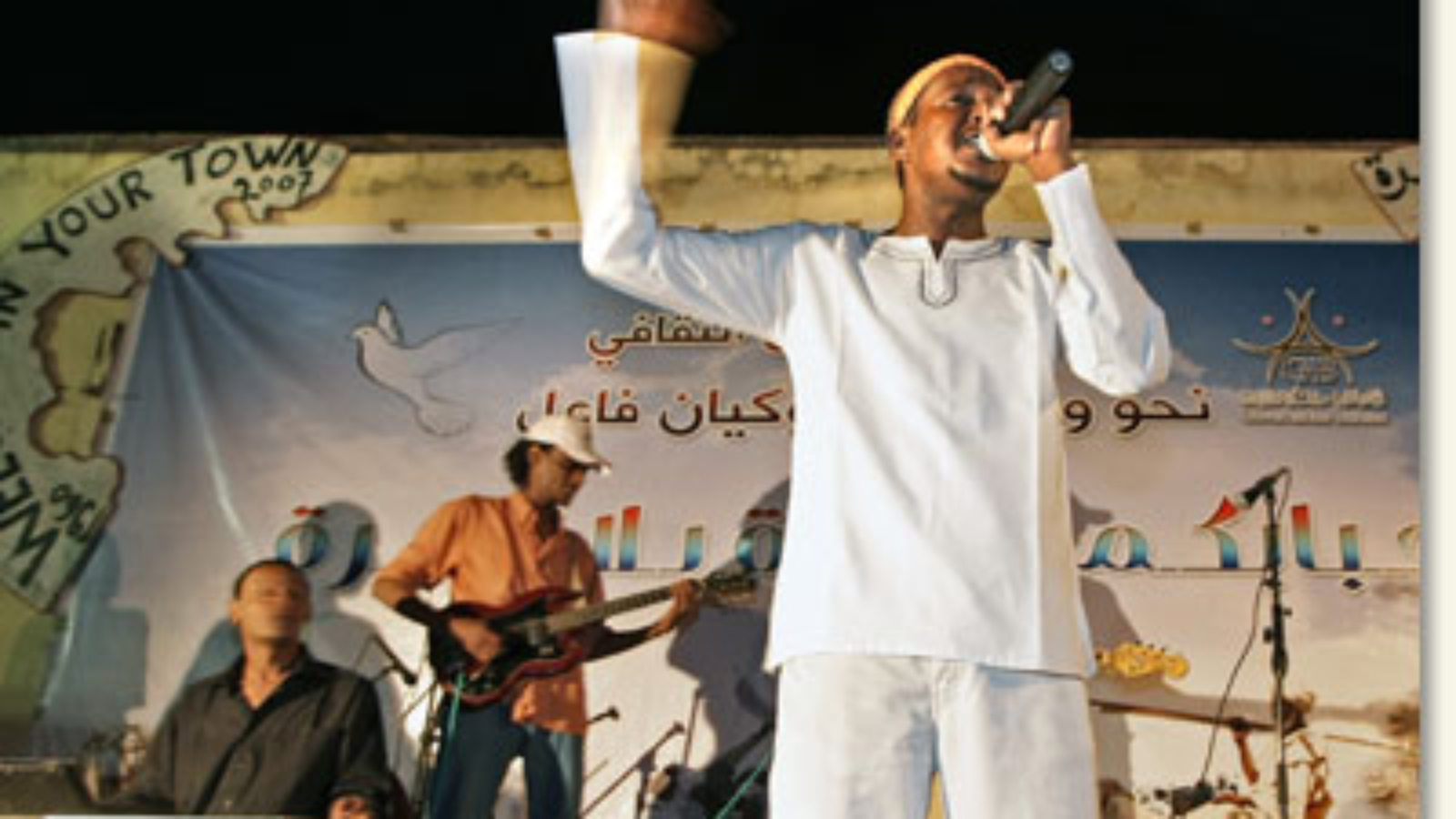by Vivian Lee
Abazar Hamid has a song hoping for peace in Darfur and a song with visions of a new Sudan—two subjects that the government won’t allow on the radio. Only his most innocuous tunes about love are allowed in public. All Hamid wants to do is reverse the deadly effects Hakama, the traditional Arab singers more locally known as the Janjaweed women, have on communities and on the conflict in Sudan. While Hamid sings about peace and love, Hakama singers go on about killing, raping and pillaging ethnic Africans.
When his last album was censored and he received threats, Hamid and his family moved to Cairo, a city populated by Sudanese refugees. Hamid saw how many of his fellow Sudanese were in exile, and wanted to perform for them. But first he needed a work permit. The money generated from the concert would pay for his permit. It was a Catch-22.
FREEMUSE, an organization that helps oppressed musicians and composers, nominated Hamid to freeDimensional for help. fD granted him $200 for his work permit and Hamid was able to set up his first performances in a local art space. This experience led to the creation of a Creative Resistance Fund, which gives grants to help and support artists in tyrannical regimes.
freeDimensional, organized by Todd Lester, Hugo Espinel, and Alexandra Zobel, seeks to protect artist-activists who live in oppressive countries by providing a safe space for artists to peacefully explore in their medium of work while also working as activists. For more information or to help this cause, visit their website.
Picture courtesy of freeMUSE.
